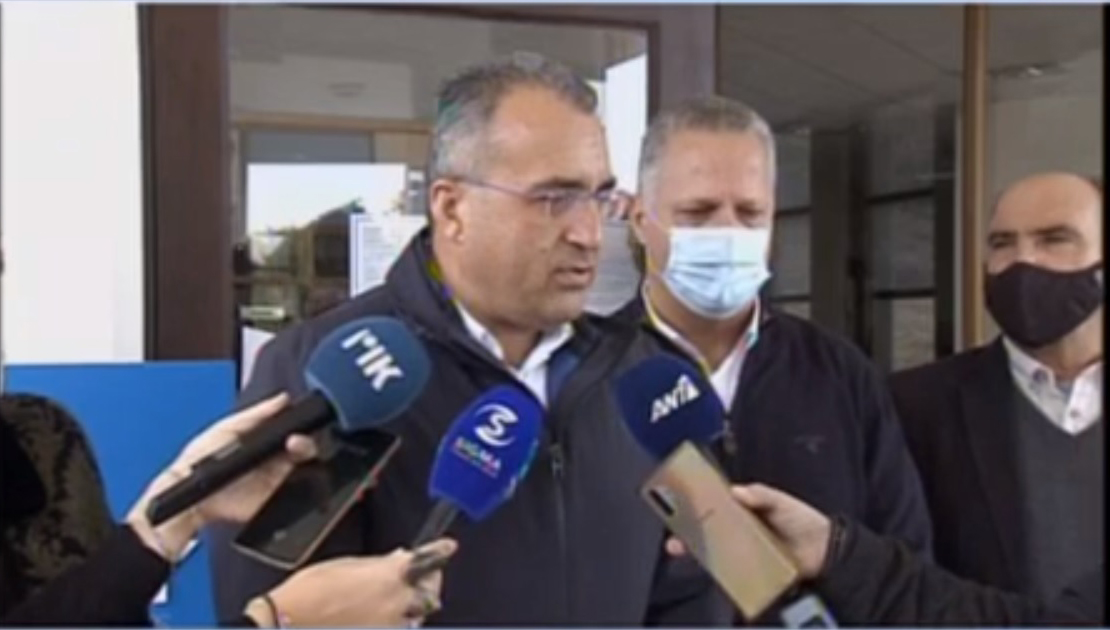No further measures will be needed as long as we stick to the current ones, Health Minister Michalis Hadjipantelas said on Saturday.
He was visiting Pachna health centre, serving as a vaccination centre this weekend as part of the health ministry’s efforts to widen vaccination coverage among the wine villages, in the mountainous areas of Limassol.
Stricter measures were introduced this week to reduce the spread of coronavirus, which included masks requirements for young children and the suspension of Christmas events.
“We have so far administered 400 vaccines and expect to reach 500 by the end of the day, a number we didn’t initially expect to reach, but have thanks to the people who came to get jabbed”.
Pachna should be an example followed by other communities, he added, saying that if enough interest is shown then the health ministry will arrange vaccinations in more communities.
Asked about the equipment for detecting the Omicron variant, the minister said it should be arriving in Cyprus in the next few days. “The new machinery will just enable us to get results quicker than we do now”.
On the recently introduced measure requiring everyone arriving to Cyprus, including Cypriot students, to pay for a PCR test, Hadjipantelas said that it is seen as temporary.
“Let’s look at the positive – this test will allow our students coming from abroad to feel comfortable visiting their grandparents, siblings, and relatives without risking giving them the virus”.
The measure was decided because of the unpredictability of the new variant, he said, adding that he believes it will not continue into January.
Meanwhile, the ministry’s permanent secretary, Christina Yiannaki said that as of Friday, 81.3 per cent of the population was vaccinated against Covid.
She added that more minors between the ages of 12 and 15 and 17-year-olds are getting vaccinated, with around 6,000 jabs booked in one day.
Yiannaki also said that Cyprus will be the first European member state to receive Covid vaccines for children, with a shipment arriving on December 13, a week earlier than expected.
For his part, commissioner for the development of mountain communities Costas Hambiaouris praised the success of the vaccination programme in mountainous areas.
“We will give every single person living in the mountains direct access to the mobile vaccination units, because we are here to support the health ministry’s efforts,” he said.







Click here to change your cookie preferences